My regular, public writing is starting up again, as we’re getting settled in. Over the course of a few busy months, some of my pieces have come out in academic outlets, like the essay I posted last week. Here’s a further piece published this year (2016) in The Journal of Speculative Philosophy. It’s titled “Self-Respect and a Sense of Positive Power: On Protection, Self-Affirmation, and Harm in the Charge of ‘Acting White’.” Here’s a pic of it:
I seek permission to post my full articles on my Academia.edu page, and I either am given it or have at least given a good faith effort to get that permission. In this case, though, this copy of the paper is the only one I have with my final edits and it’s plastered with JSTOR info (online journal database) and policies stuff. Given that, I’m posting a link to the JSTOR page for my paper instead of to a scan on my Academia.edu profile. If you have academic library access to such stuff, you can probably open the paper or manage to get access to it here (the “static” page for the on JSTOR).
This essay is one of the steps in my overarching project on culture and justice. For now, I can share my abstract for the paper:
In the liberal tradition, self-respect is most often associated with Kantian moral philosophy, which suggests a focus on individual responsibility. While the individual plays a part in the development of his or her self-respect, so, too, do his or her environmental and cultural conditions. In this essay, I distinguish between conceptions of self-respect, especially those that focus on it as a duty to oneself, and having a “sense of one’s own positive power,” a Deweyan educational ideal. A sense of positive power is partly directed by the individual but is also clearly conditioned by the ways in which one’s culture treats and reacts to one’s efforts. Thus, a sense of positive power, as a concept, reveals the powerful role of one’s wider culture in frustrating or enabling a vital element of personal growth necessary for justice. I test the distinction with respect to the difficult and harmful charge of “acting white,” which concerns self-respect and the role of oppressive forces conditioning people’s senses of their power in an unjust society.
If I can figure out a way to share the full paper without violating relevant policies, I will. In general, scholars as editors want you to share your work. A journal is better known the more it’s read. I do understand that there’s a system to this, however, and I try to always seek permission to share my work as much as I can.
Despite this hurdle, I’m especially happy to have work come out in The Journal of Speculative Philosophy. It’s a classic outlet in American philosophy. John Dewey published in it as early as 1882. Also, Charles Pierce published one of his classic pieces in the journal as early as 1868 (free to access, unlike my paper). A few of Dewey’s early papers there are available for free as well, such as this one on Kant that was very helpful for my dissertation.
If you can’t access this paper and want to know more about it, let me know that. At the very least, that’ll tell me that I should probably consider a newspaper piece on the subject. For now, I’m working on an op-ed on education and another on the Presidential election.
Reach out if you’re interested and follow or “like” my pages on Twitter @EricTWeber and on Facebook.com/EricThomasWeberAuthor.



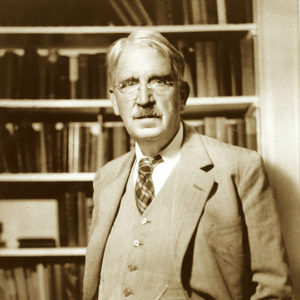
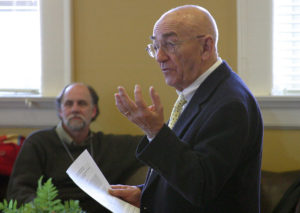
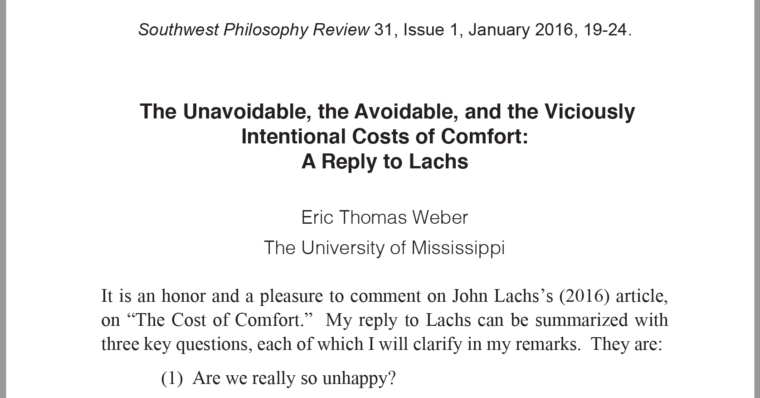

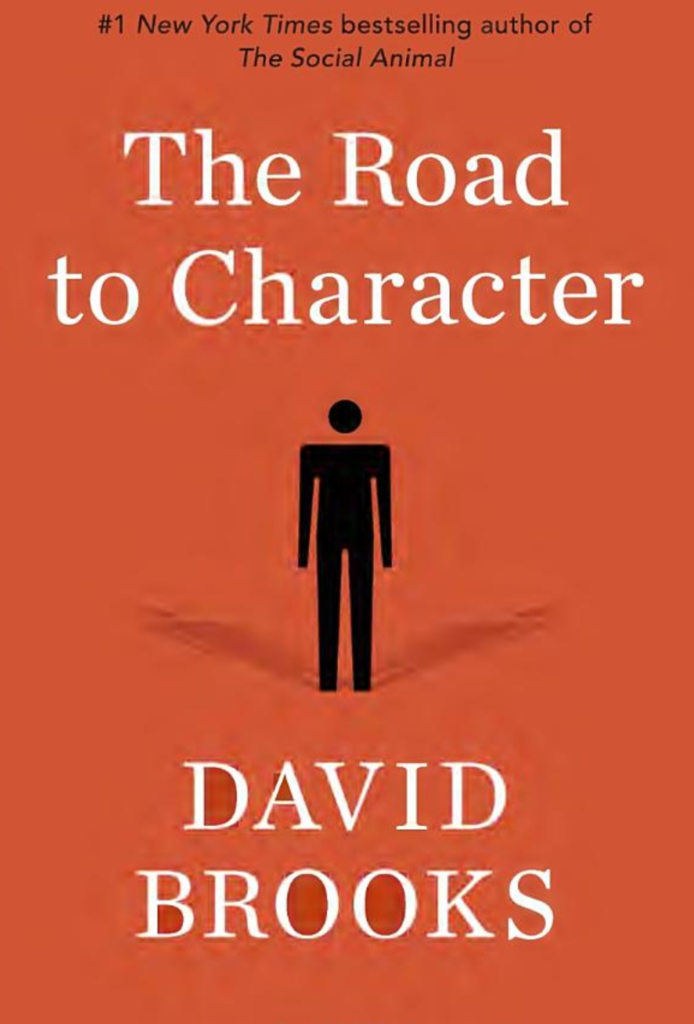

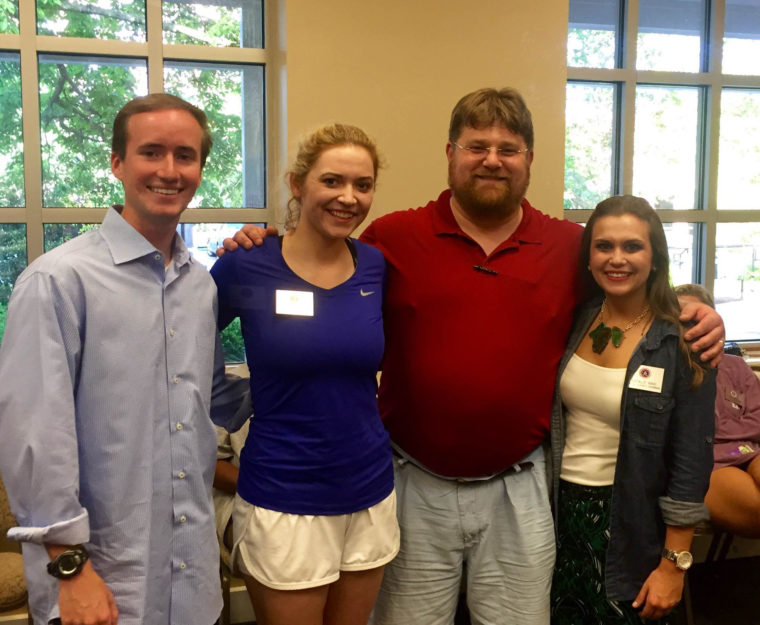
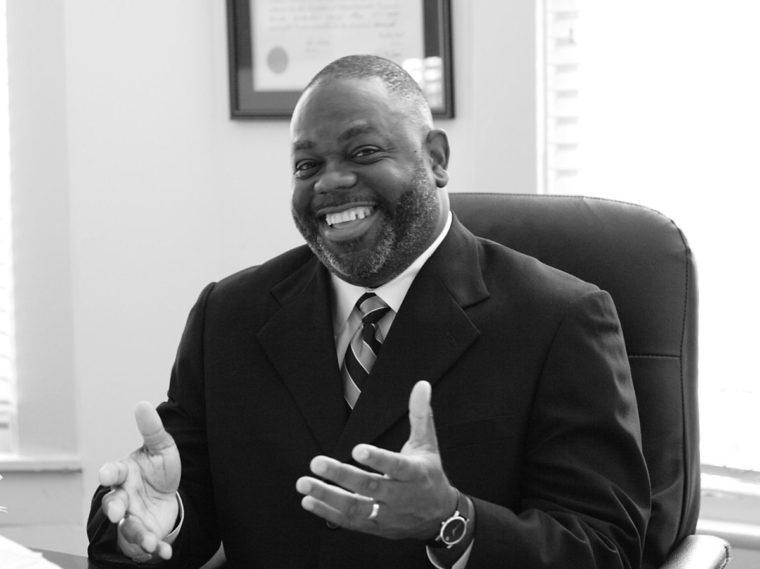

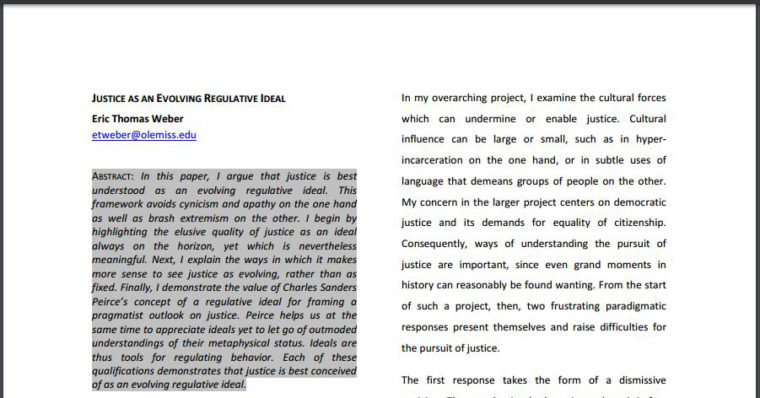

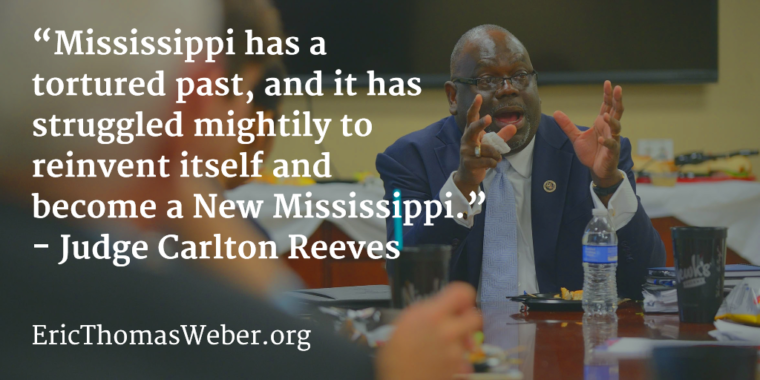
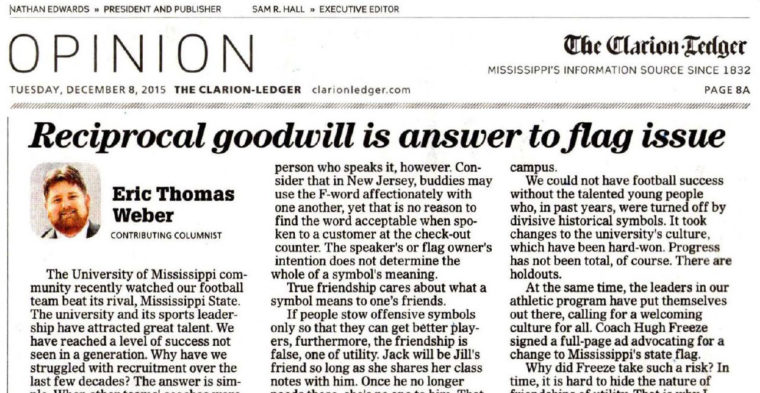


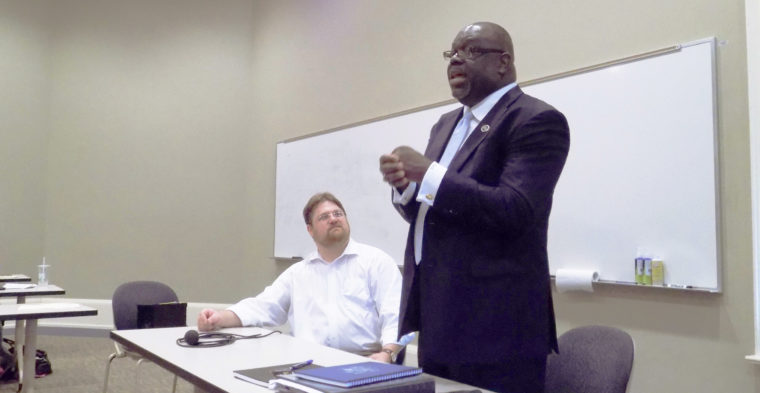





 About Me
About Me